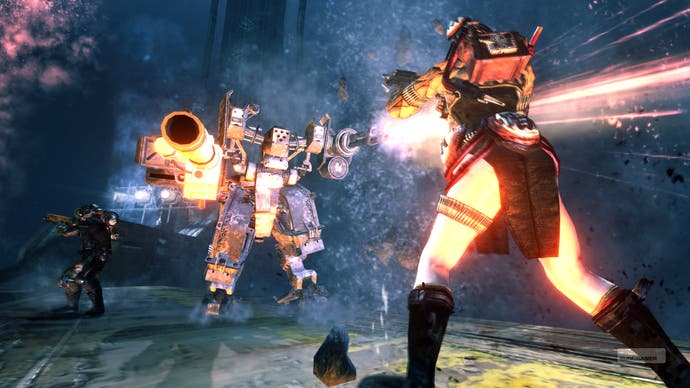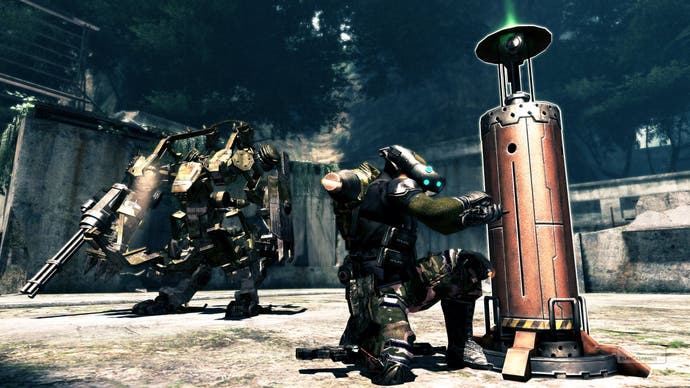Lost Planet 2
Rediscovered country.
Jun Takeuchi wasn't exaggerating when he described this sequel as "almost a totally different game". Unlike the lonely, icy adventure that constituted the original, the hugely ambitious Lost Planet 2 has been re-envisioned as a four-man multiplayer adventure in a variety of climates. You still get to activate data posts and shoot the obvious, glowing orange weak spots of terrifying insectoid behemoths on a regular basis, but that's where the similarities end.
Most of the changes seem grounded and well-intentioned on the face of it. Who wouldn't want a more varied, expansive and technically astonishing follow-up to an already highly promising game? Being able to experience the intensity and chaos alongside up to three friends offline or online should help Lost Planet 2 to be one of 2010's most desirable shooters.
However, unexpectedly, the very things that make the game sound so appealing are also the things that conspire to undermine your enjoyment.
A few weeks ago, Takeuchi opined that "everything has improved" in Lost Planet 2, but that depends how you like to enjoy your videogames. If, for example, you want to play the game's central Campaign mode on your lonesome, you should be prepared to adapt to a run of unusual and often inexplicable design choices.

As if to underline its uncompromising positioning as a multiplayer game, Lost Planet 2 offers no save system at all, no checkpointing during gameplay, and any in-game 'death' simply respawns you at the nearest data point.
Rather than give you a stock of lives, the game starts you off with a limited number of Battle Gauge points (depending on difficulty), and dying reduces that by 500, or 1000 if you happen to be in a Vital Suit mech at the time. Run out of Battle Gauge points and you have to start the entire chapter from the beginning, potentially costing you anything up to 45 minutes of wasted time.
During the first couple of mildly challenging episodes, this doesn't feel much of a problem at all, with only truly incompetent play likely to get you into trouble. But once the game starts to turn up the heat at the end of episode three, having to replay numerous lengthy sections to get back to where you failed is hand-gnawingly irritating.

When you start to really dig into why you failed, you notice some irredeemable AI flaws during solo play. We're more than happy for shooters to be designed from the ground up as co-op experiences, but one of the main things that made games like Gears of War and Left 4 Dead special was the fact your enjoyment didn't hinge entirely on playing them with a group of friends, because your AI partners were intelligent enough to ensure it was extremely good fun either way.
You'd expect the same to hold true of Lost Planet 2, but the buddy AI is often hopelessly out of touch with what's required, and when it winds up costing you up to 45 minutes of playtime you'll be baying for blood. To give the AI its dues, when faced with a basic corridor firefight it almost always holds its own, but when it comes to the crucial moments where teamwork is mandatory, it's routinely hopeless. Fail a further four or five times and you'll really wonder about the logic of such a progression system.
One memorable boss encounter requires all four of you to work together to reach the end of a train, load a giant cannon, rotate it to face the right direction, cool the engines and get one guy to actually fire the thing. And yet with no means of instructing your team to do anything, you're left haplessly multitasking.


